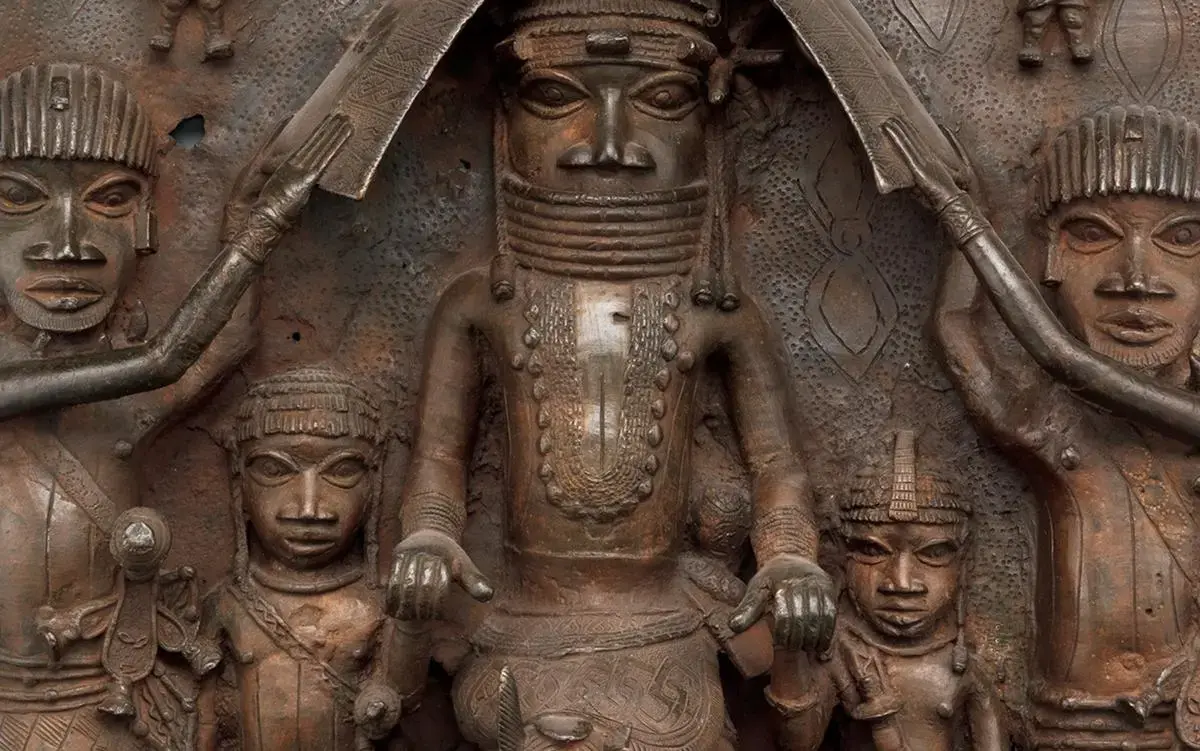This type of semantic hair splitting and manufactured outrage helps no one. OK, instead of pre-colonial, use pre-European. But, look! The rose by another name smells the same.
Absolutely. The author is WAY too hung up on the phrase as some kind of holdover from colonial-era European writers using it as a pejorative to mean “uncivilized”, when now almost anyone you’d ask would interpret “pre-colonial” as meaning, “before the racist, white supremacist European assholes invaded”.
If someone is actively using the phrase to homogenize African cultures or treat pre-colonial Africa as a monolith, call them out for the homogenization; people do that with “post-colonial” Africa too.
I think the point might be reasonably condensed to:
- Africa is big and diverse, and its internal geographic barriers (particularly the Sahara) are more significant than the ones dividing it from Europe and from southwest Asia.
- Some parts of Africa have thousands of years of written or otherwise well-documented history, and each part has seen several waves of significant change, including colonization from other areas of Africa (e.g. by Egypt or Mali), from Europe (e.g. by Rome), and from southwest Asia (e.g. by the Umayyads); and colonization of other areas (e.g. of the Iberian peninsula by Morocco).
- For some parts of Africa, the latest round of European colonization is arguably less significant than previous changes.
- Thus, for serious discussions of history, “pre-colonial Africa” is not a useful division to make: you won’t be able to say anything meaningful without more precisely specifying the time and region (e.g. “medieval west Africa”).
- This isn’t fixed by changing to “pre-European Africa”.
- Both “pre-colonial Africa” and “pre-European Africa” additionally suck because, instead of using a more relevant division, you are using a less-relevant Eurocentric term.
I think you did not understand the point of the author at all. Using pre-European would just be as bad as using pre-colonial.
It does matter a lot actually in what framework we talk and think about things. I think the author made a good job of explaining why setting everything in Africa’s history in relation to this one event of colonialism by Europeans is ignorant and incorrect.
You may have notized that the author didn’t give any alternative to the term per-colonial and for a reason. Just using another term would defeat the whole point of trying to abandon the faulty framework behind the term. We need to get rid of thinking about Africa as unimportant, homogeneous and uncivilized. We need to get rid of our ignorance and biased views!
In reading through this article, although I agree with encouraging the understanding of the continent of Africa that is not filtered through the lens of European racism, I can’t agree with this premise. I think that by diminishing the role which European colonialism played on the entire continent (not culture, not country, but geographical continent) it is unintentionally whitewashing the role which racism has played in world history and continues to play. The author mentions European colonialism as a “single event,” but it is an ongoing event committed by various European groups over centuries which completely devastated socially, environmentally, economically, and otherwise thousands of cultures throughout an entire continent many of which were eliminated totally. I would not go so far as to say that one should center or focus on the invaders in the study of African history, but colonization is fundamentally important to having any understanding at all of almost anywhere in the global south as it exists today in 2023 where colonization is not historical but an ongoing process. The author asks if any other continents are referred to as “pre-colonial,” which as an American I can name two which were similarly devastated and are referred to as such.
I have lived in New Orleans where we have similar language. Right now we are living post-Katrina. Although Katrina was a mindless storm, the destruction of the city’s culture and loss of life was so severe it marks a turning point in the history of the city, and the worst of it was driven primarily by racism. This is not to say that New Orleans is nothing more than Katrina, since I believe it has one of the richest collections of cultures of any city in the US, but to understand New Orleans as it is now it is important to understand the factors which contributed to the neglect of our infrastructure, thousands of people being left to die by the federal and state governments, and uncounted many directly murdered by the authorities. Losing over 2/3rds of our population to one event was very significant, especially considering how we lost those people. What New Orleans was still is. The soul of the city can’t be extinguished and wasn’t, but you have to acknowledge that Katrina was a defining factor in the way New Orleans is now however ugly it is.
Everything the author of the article mentions about the size, diversity, and relevance on a world scale of various societies located on the African continent is absolutely true and I 100% support disseminating this information. Rather than dismiss the relevance of European colonization, perhaps a better understanding of the word “colonialism” should be encouraged. “Colonialism” is in no way an improvement or even has the intention of benefiting the colonized. It is a genocidal practice which is responsible for almost all of the worst atrocities of the last 500 years, and many more atrocities committed in the context of European colonization of Africa and the Americas. When I hear or read the phrase “pre-colonial Africa” I don’t think of fantastical “primitive” societies prior to being “enlightened” by Europeans, I’m thinking of an entire continent prior to being completely upended by centuries of destruction. I think it’s important to acknowledge that destruction took place and continues to influence the lives of all Africans and all people designated in the system of racism as “Black.” I am not comfortable with defining an entire continent by a disaster carried out by people not even from that continent, but the devastation was so severe and relevant I think it’s important to regard it as a turning point and fundamentally important to any understanding of world history.
Once again I agree with the author’s true underlying point that Africa is so much more than just what the Europeans did to it, always was, and always will be.
I read through the article but found the authors point muddled. They kept switching between the points they were arguing, which made it less persuasive.
Specifically, they make many references to the term being racist. But they mostly argue that the term is reductionist to African history, and let us conclude that is how the term is racist. But I don’t know that many historians or serious scholars are using the term to describe the history of Africa. It certainly isn’t a term I recall from my anthropology or history classes, though I’m now some years removed from them. Instead I remember “North Atlantic slave trade” sometimes in conjunction with the Spanish silver trade.
So I’m not sure who their audience is. Who is going around making claims about African history using a very nondescript term? Any history buff could tell you that the notion of African is just as complex as Greek given the span of culture of the old Greek kingdoms. Is it the general public? But if so, don’t most people use it to denote a time period, e.g., before 1700?
So the lack of framing and structure leaves me really luke warm to the article. They don’t do a good job of explaining the context of the terms use that is problematic, and they don’t structure their arguments well. They use inflated language for its own sake, not for the sake of scholarly precision or clarity, and they leave too many things as unspoken assumptions.
I suppose if the main point is the term lacks precision, I agree. But so do many terms we use to describe epochs of history. China before the opium war, post-civil war America, etc. These are just proxies for time period references that would be used before detailed explanation of a before, after, and causal link to the event specified.
I feel like the author has a point here that could be made significantly better by someone else.
deleted by creator






